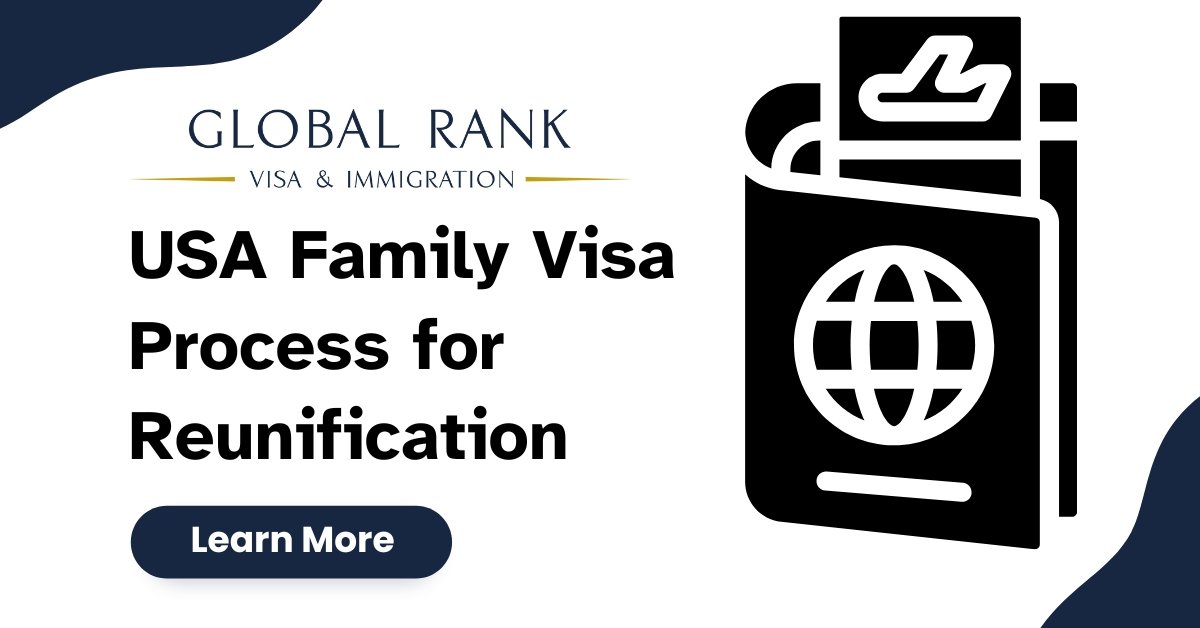Paypal Casino Sites We will hopefully be seeing more added to the list. Free Spins No Deposit Casinos Online gambling is permitted in Cyprus because it is one of the world's top online gambling jurisdictions. Best Online Cash Rummy App
Skip to content
Reuniting with family members in the United States is a powerful aspiration for many individuals across the world. If you are a U.S. citizen or a permanent resident (green card holder) seeking to bring your loved ones to the U.S., it’s important to understand the family-based immigration process. The USA family visa process can be complex and time-consuming, but knowing the details and requirements will ensure a smoother experience for both the sponsor and the immigrant.
This comprehensive guide explains the eligibility requirements, application process, processing times, and visa fees for USA family reunification. Whether you’re interested in sponsoring a spouse, parent, child, or sibling, this article will guide you through each step of the process.
For personalized advice and to ensure the best course of action for your specific case, feel free to book a free consultation with us.
Before you begin the process of sponsoring a family member for a U.S. family visa, you must first determine whether you are eligible to do so. U.S. immigration law allows U.S. citizens and lawful permanent residents (LPRs) to sponsor specific family members. However, the eligibility requirements and categories of family sponsorship differ between U.S. citizens and green card holders.
As a U.S. citizen, you have the ability to sponsor a wide variety of family members for immigration. The primary categories of family members eligible for family-based visas include:
While green card holders can also sponsor family members for U.S. immigration, the scope is more limited compared to U.S. citizens. Green card holders can sponsor:
It is important to note that green card holders cannot sponsor parents or siblings. Additionally, all sponsors must prove they can meet the financial requirements to support their family members by submitting an Affidavit of Support (Form I-864) to show that the immigrant will not become a public charge.
The application process for a family-based immigrant visa can be broken down into several distinct steps. These steps may vary depending on whether the family member is inside or outside the United States. The general process includes filing a petition, submitting supporting documents, attending an interview, and finally, receiving the immigrant visa.
The first step in sponsoring a family member for a U.S. family visa is to file a petition. The sponsor must submit Form I-130, Petition for Alien Relative, to the U.S. Citizenship and Immigration Services (USCIS). This form is used to establish the relationship between the sponsor and the family member seeking a visa.
Once the petition is approved by USCIS, it is forwarded to the National Visa Center (NVC) for further processing.
After USCIS approves the petition, it is sent to the NVC, which will assign a case number and provide instructions on how to proceed with the immigrant visa application. The NVC will require the following:
Once the NVC receives all required documents and fees, they will schedule a visa interview at the U.S. consulate or embassy in the applicant’s home country.
The final step in the family-based visa process is the visa interview. During the interview, a consular officer will review the application and documents to verify the eligibility of the family member. The officer will assess whether the relationship with the sponsor is genuine and whether the applicant meets all the eligibility requirements.
If the visa is approved, the family member will be granted an immigrant visa, allowing them to travel to the United States. Upon entry, the family member will be admitted as a lawful permanent resident.
For more guidance on the visa application process, visit our page on Canada Visit Visa.
The processing time and fees associated with family-based visas can vary depending on the specific visa category and the applicant’s country of origin. Below is a breakdown of the typical processing times and costs you may encounter during the family visa application process.
The waiting times can also be affected by the applicant’s nationality, as countries with high demand for U.S. visas often experience longer backlogs.
Additional fees may apply for the medical examination, police certificates, or translation of documents, depending on the applicant’s country.
For more information about the costs associated with U.S. family-based immigration, check out our Types of Canada Visas page.
+971 526390474
+447 71 5382631
info@global-rank.com
180 London Road, Romford,England. RM7 9EU
☎️ +44 (0) 2034893448
Office 1, 12th Floor, I-rise Tower,Barsha Heights, Dubai, UAE
☎️ +971 4 834 9001
WhatsApp us